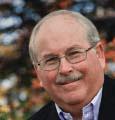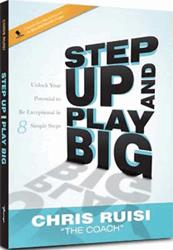Getting Great = Confidence + Willingness
By Chris Ruise, nationally recognized executive coach and leadership expert, professional speaker, global talk radio show host, and author
 All of us want to perform at a higher level than we are currently at. However, we let daily distractions, fear of trying something new, the fear of making a mistake, and unsolicited feedback from others get in the way of our efforts to “get great.” We put ourselves in a “stuck-in-the-mud” position and lose sight of what we should do first.
All of us want to perform at a higher level than we are currently at. However, we let daily distractions, fear of trying something new, the fear of making a mistake, and unsolicited feedback from others get in the way of our efforts to “get great.” We put ourselves in a “stuck-in-the-mud” position and lose sight of what we should do first.
I believe the first thing we should do is build our self-confidence and willingness to take action. Many of us always talk about wanting more self-confidence but struggle with building and maintaining it in the face of our daily challenges.
When I talk about confidence, I frame it within the concept of your “personal willingness.” For example, building self-confidence is your personal willingness to:
- Keep moving forward toward the achievement of your goals; your persistent and consistent actions will be key to your success. Far too often we let barriers and obstacles block our paths — there is usually a way forward.
- Put yourself out there for others to see and judge because you know what you’re doing is the right thing. Hiding in the shadows does nothing for your growth or the growth of your organization.
- Take a risk — without risk taking, there is no way you can test your abilities. And, when you test them and succeed, your self-confidence grows.
- Never worry about what others think of you. It’s none of your business. Stay focused on your vision and goals and do what is right for your organization.
- Question your status quo before you are forced to “react” to change. One of the biggest career and organization killers is complacency. When you allow yourself to become complacent, by the time you realize a change is needed, it is usually too late.
- Learn from your mistakes. Mistakes are a necessary part of the journey to becoming great, not perfect. They offer a great learning opportunity because you get to take new knowledge and try it again! Pursuing perfection is a meaningless and frustrating exercise and usually leads to procrastination and stagnation.
- Accept responsibility and accountability for your actions. The mantra that works best for me and my coaching clients is: You own it, fix it, learn from it, and move on.
 As you can see, personal willingness involves taking action. Every time you take action you give yourself several opportunities. Some of these opportunities include accomplishing something, learning something, or setting new limits for your performance. The most important opportunity is that you build or increase your self-confidence.
As you can see, personal willingness involves taking action. Every time you take action you give yourself several opportunities. Some of these opportunities include accomplishing something, learning something, or setting new limits for your performance. The most important opportunity is that you build or increase your self-confidence.
To put yourself on the road to getting great, be confident, which means you’re willing to act to first satisfy yourself (and no one else) that you did your very best – every time!
